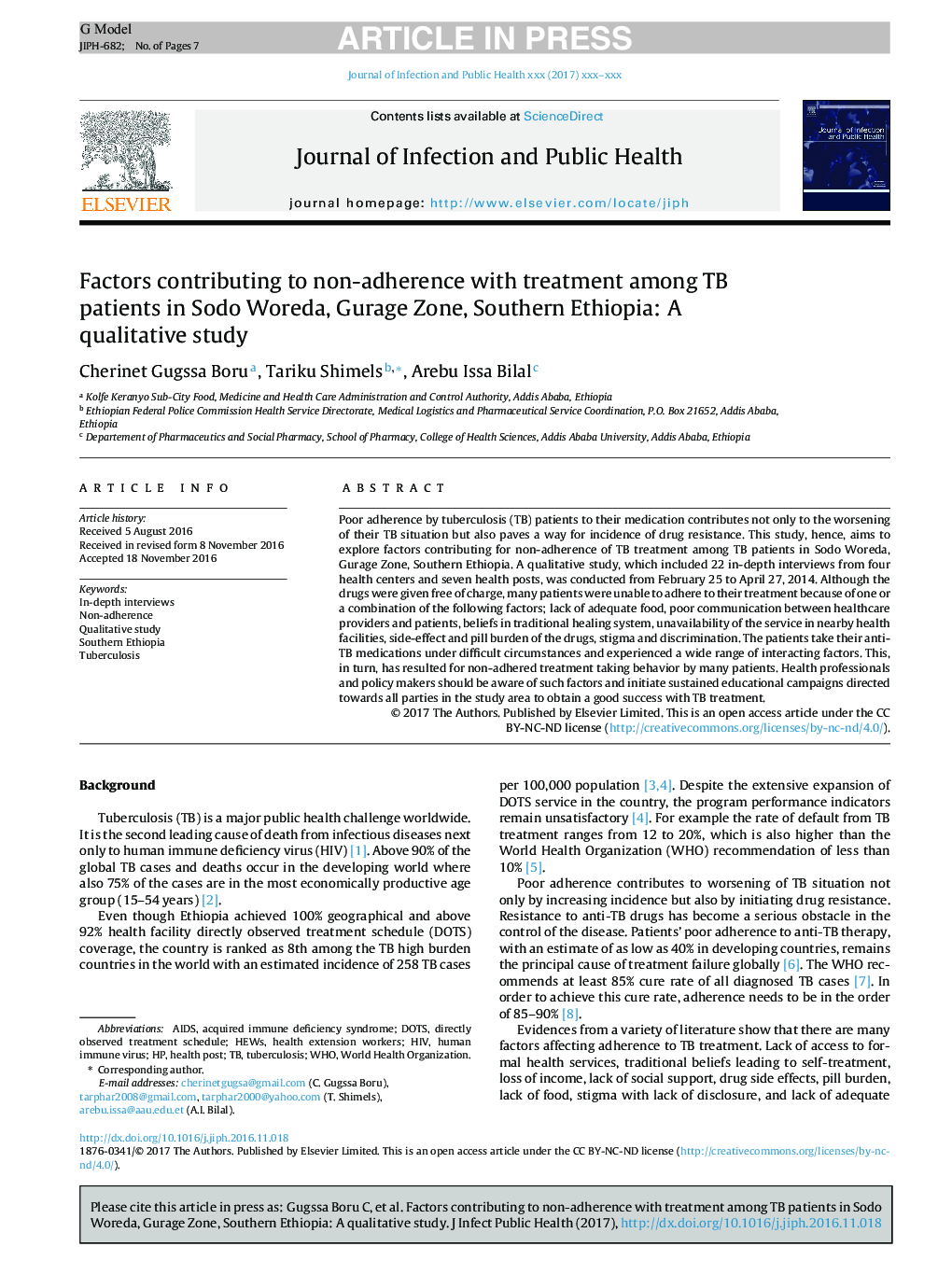| Article ID | Journal | Published Year | Pages | File Type |
|---|---|---|---|---|
| 5672742 | Journal of Infection and Public Health | 2017 | 7 Pages |
Abstract
Poor adherence by tuberculosis (TB) patients to their medication contributes not only to the worsening of their TB situation but also paves a way for incidence of drug resistance. This study, hence, aims to explore factors contributing for non-adherence of TB treatment among TB patients in Sodo Woreda, Gurage Zone, Southern Ethiopia. A qualitative study, which included 22 in-depth interviews from four health centers and seven health posts, was conducted from February 25 to April 27, 2014. Although the drugs were given free of charge, many patients were unable to adhere to their treatment because of one or a combination of the following factors; lack of adequate food, poor communication between healthcare providers and patients, beliefs in traditional healing system, unavailability of the service in nearby health facilities, side-effect and pill burden of the drugs, stigma and discrimination. The patients take their anti-TB medications under difficult circumstances and experienced a wide range of interacting factors. This, in turn, has resulted for non-adhered treatment taking behavior by many patients. Health professionals and policy makers should be aware of such factors and initiate sustained educational campaigns directed towards all parties in the study area to obtain a good success with TB treatment.
Related Topics
Health Sciences
Medicine and Dentistry
Infectious Diseases
Authors
Cherinet Gugssa Boru, Tariku Shimels, Arebu I. Bilal,
